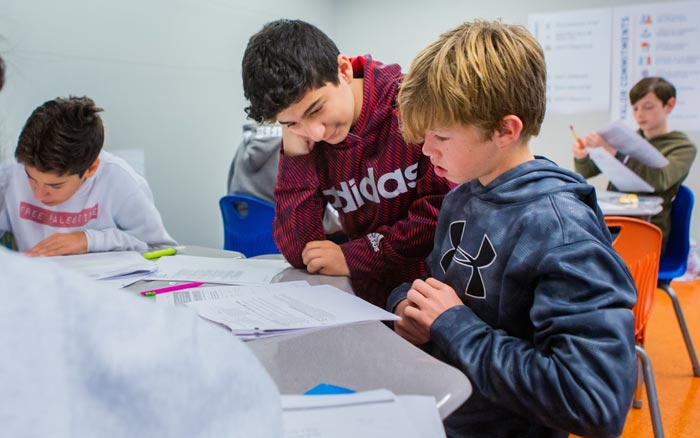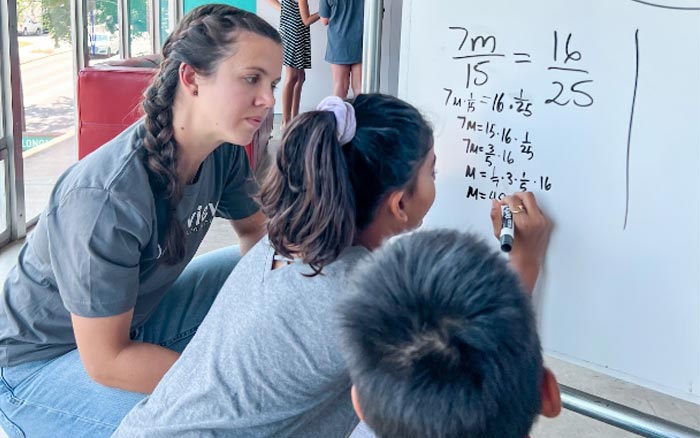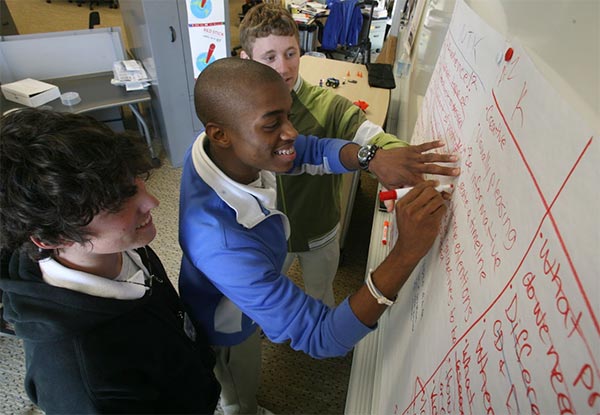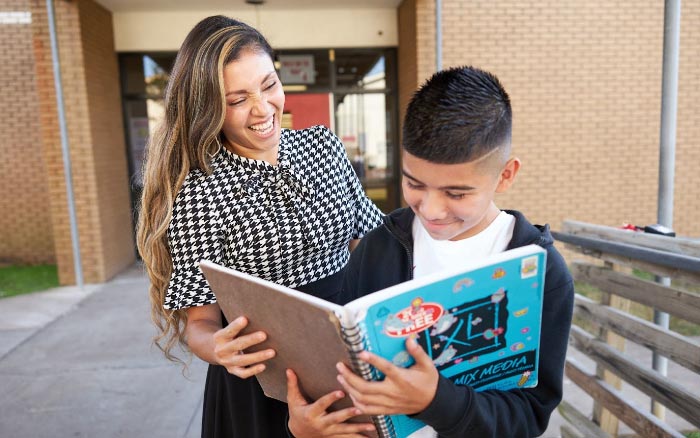
Schools’ traditional focus on acquiring academic knowledge has often been coupled with lower-order tasks focused on memorization and rote application. Often, these activities focus on breadth at the expense of depth, limiting opportunities for application, problem solving, and analysis. While lower-order tasks, like recalling and explaining information, do build a basic foundation, learning too rarely builds on this foundation in the ways that are needed for deeper learning. And today it is rigorous learning and the dynamic use of various thinking skills that will prepare young people for success now and in the future.

Making rigorous learning accessible to every child can improve the quality and impact of education for all young people. Rigorous learning involves using a range of thinking skills to make meaning of complex ideas and assessments that determine learners’ ability to recall and explain information as well as to apply, analyze, evaluate, and create with it across contexts. Rigorous, higher-order thinking promotes deeper, longer-lasting learning because it involves analyzing, synthesizing, and applying one’s learning. All of this helps to more meaningfully encode or embed it into long-term memory. Rigorous learning activities are also often more interesting than rote, lower-order activities. As a result, learners see more value in them and, in turn, are more motivated and engaged. Rigor also prepares learners for college and changing workforce demands. For example, employers now expect those they hire to have advanced skills like analytical and creative thinking skills, which are built through rigorous learning. As a result, expanding the use of higher-order thinking skills can improve the chances of career and college success for all young people and prepare them to solve the increasingly complex challenges our society faces.
This Leap Means…
- Learners completing higher-order thinking tasks that encourage application, analysis, critical evaluation, and the creation of new ideas.
- Learners engaging in challenging grade-level work and experiencing productive struggle regardless of what skills they are still working to master through well-designed scaffolds and extension activities.
- Learners building varied forms of knowledge including factual, conceptual, and procedural knowledge.
- Learners retrieving prior learning and applying it in new ways across diverse contexts and content areas.
Students spen[d] more than 500 hours per school year on assignments that weren’t appropriate for their grade and with instruction that didn’t ask enough of them—the equivalent of six months of wasted class time in each core subject.
The New Teacher Project
Examples
IB Diploma Programme (DP) from International Baccalaureate (IB) (Ages 16–19)
The DP prepares learners for success in higher education and active participation in a global society through a world-class and rigorous curriculum. Learners study content from six study groups including language acquisition, individuals and society, and the arts, as well as reflecting on the nature of knowledge and completing independent research and a project that often involves community service through the DP core, building depth and breadth of knowledge and skills.

Math Block from The Number Lab (Grades K–8)
The Number Lab Math Block reimagines math education through an ideas-focused approach so that learners can build deep mathematical knowledge and reasoning skills. Learners engage in authentic mathematical practices through several distinct elements—Thought Exercises, Concept Studies, and Studio—where they discover the deep principles of math, make connections across concepts, engage in collaborative reasoning, and develop future-focused skills.

New Tech Network (Grades K–12)
The New Tech Network K–12 systemic approach creates scalable and sustainable change so that all learners are college and career ready. Through meaningful and equitable instruction, purposeful assessment, and a supportive and inclusive culture, learners engage in contextual, creative, and shared learning—solving complex tasks that require critical thinking, creativity, and collaboration to answer challenging questions.

Summit Learning from Gradient Learning (Grades 4–12)
The Summit Learning program is a research-based approach to teaching and learning designed to drive learner engagement, more meaningful learning, and strong learner–teacher relationships that prepare learners for life beyond the classroom. Through small group support, group projects, mentoring, and an extensive curriculum that includes rigorous learning objectives covering all core subject areas, learners build and acquire a diverse range of knowledge, skills, and habits.


